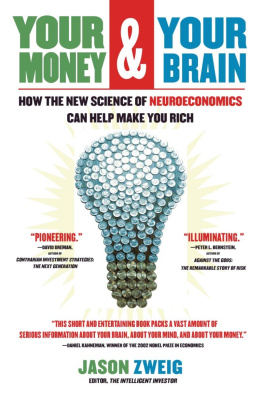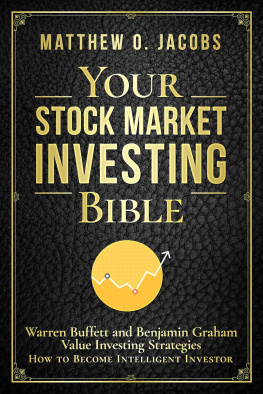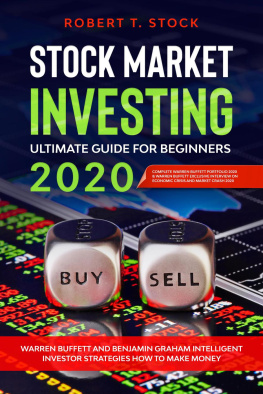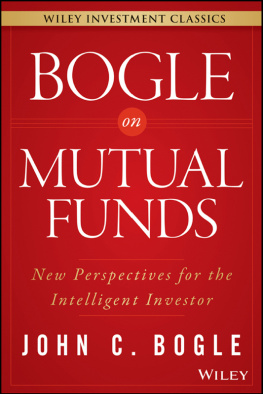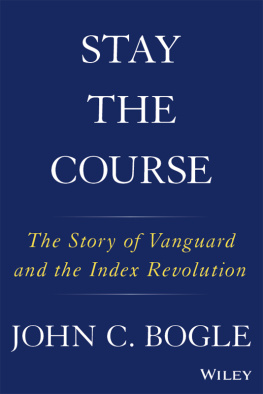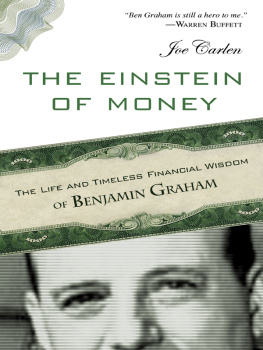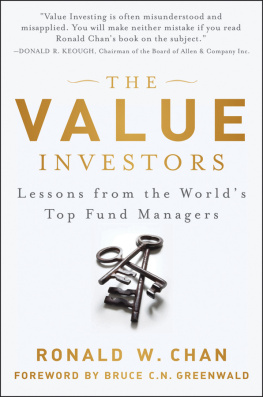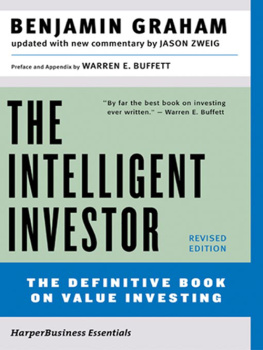Jason Zweig - Benjamin Graham, Building a Profession: The Early Writings of the Father of Security Analysis
Here you can read online Jason Zweig - Benjamin Graham, Building a Profession: The Early Writings of the Father of Security Analysis full text of the book (entire story) in english for free. Download pdf and epub, get meaning, cover and reviews about this ebook. year: 2010, publisher: McGraw-Hill Education, genre: Politics. Description of the work, (preface) as well as reviews are available. Best literature library LitArk.com created for fans of good reading and offers a wide selection of genres:
Romance novel
Science fiction
Adventure
Detective
Science
History
Home and family
Prose
Art
Politics
Computer
Non-fiction
Religion
Business
Children
Humor
Choose a favorite category and find really read worthwhile books. Enjoy immersion in the world of imagination, feel the emotions of the characters or learn something new for yourself, make an fascinating discovery.

- Book:Benjamin Graham, Building a Profession: The Early Writings of the Father of Security Analysis
- Author:
- Publisher:McGraw-Hill Education
- Genre:
- Year:2010
- Rating:3 / 5
- Favourites:Add to favourites
- Your mark:
Benjamin Graham, Building a Profession: The Early Writings of the Father of Security Analysis: summary, description and annotation
We offer to read an annotation, description, summary or preface (depends on what the author of the book "Benjamin Graham, Building a Profession: The Early Writings of the Father of Security Analysis" wrote himself). If you haven't found the necessary information about the book — write in the comments, we will try to find it.
How One Man Created a Professionand Entirely Transformed the World of Investing
The small list of investment books that must grace the library of any serious investornot to gather dust, but to be opened over and over againjust grew by one. This wonderful compilation of the wit and wisdom of Benjamin Graham is the new addition. Savor it. Learn from it. Treasure it.
John C. Bogle, founder and former Chief Executive, The Vanguard Group
If youth is measured by creativity and excitement about new ideas and a thirst for learning, then Ben Graham-in his early 80s-was the youngest guy in the room when two-dozen stellar investment managers met for three days to explain the inner workings of investment management.
Charles D. Ellis, CFA, Bestselling Author of Winning the Losers Game
These writings, spanning over 30 years, help us understand even better the remarkable achievement of this visionary man and his lasting influence on the finance profession.
Burton Malkiel, Princeton University, Bestselling Author of A Random Walk Down Wall Street
Investing involves the intelligent triangulation between fundamentals, psychology, and prices. Benjamin Graham, Building a Profession . . . illustrates how this investment legend never stopped thinking about this multi-dimensional challenge.
Seth Klarman, The Baupost Group
Serious professionals in the investment business will delight in pouring over this and checking their own thoughts against those of the master.
Jeffrey J. Diermeier, CFA, Diermeier Family Foundation, and former CFA Institute president and CEO
This is a must-read for anyone interested in the history and development of our profession and the importance of critical investment thinking.
Gary P. Brinson, CFA, GP Brinson Investments
Some investors (the happy few) know that Ben Grahams writings on financial analysis give them a leg up. So they will want to read this book, and other investors should.
Jean-Marie Eveillard, First Eagle Funds
The CFA Institute and Jason Zweig have performed an invaluable service to our profession in collecting these [writings] in one volume.
William H. Miller, CFA, Legg Mason Funds Management
About the Book:
When Benjamin Graham began working on Wall Street in 1914, the center of American finance resembled a lawless frontier. The concept of regulatory laws was in its infancy, the SEC wouldnt see the light of day for 20 years, and many firms hid assets and earnings from nosy outsiders.
And security analysts didnt exist as we know them. They were called diagnosticians, and they didnt do much analyzing. These investors prided themselves on going with the feel of the market, and most of them rarely looked at a financial statement.
Appalled by the lack of research and quantification, Benjamin Graham set out to change all thisand ended up creating the discipline of modern security analysis.
A collection of rare writings by and interviews with one of financial historys most brilliant visionaries, Benjamin Graham, Building a Profession presents Grahams evolution of ideas on security analysis spanning five decades. Articles include:
- Should Security Analysts Have a Professional Rating? The Affirmative Case
Financial Analysts Journal (1945) - Toward a Science of Security Analysis
Financial Analysts Journal (1952) - Inflated Treasuries and Deflated Stockholders: Are Corporations Milking Their Owners?
Forbes (1932) - The Future of Financial Analysis
Financial Analysts Journal (1963) - Controlling versus Outside Stockholders
Virginia Law Weekly (1953)
These pages reveal the revolutionary ideas of a man who didnt so much find his calling as he created it from scratchand opened the door for entire generations of investors.
Jason Zweig: author's other books
Who wrote Benjamin Graham, Building a Profession: The Early Writings of the Father of Security Analysis? Find out the surname, the name of the author of the book and a list of all author's works by series.

